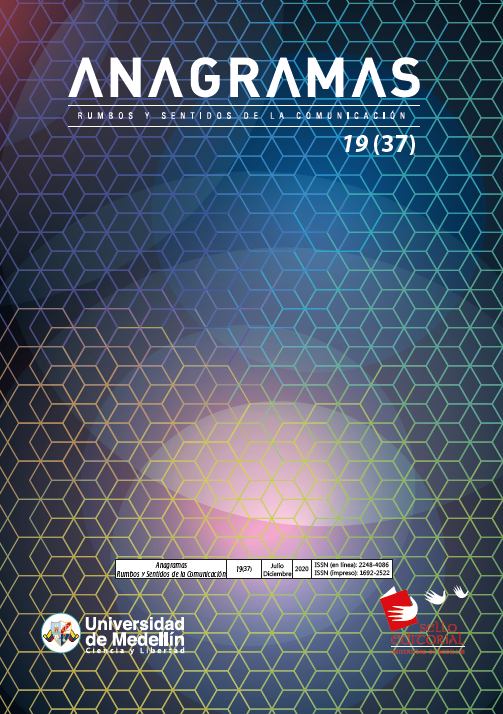Post-truth: Collective Identities that Degenerate Democracies
Main Article Content
Abstract
This research has as its main goal analyzing the post-truth phenomenon and its influence in the conformation of a society whose type of collective identity assigns great value to its beliefs and emotions in the construction of public opinion. This phenomenon creates political polarization that degrades democracies in societies that exclude the opinion of those who does not think as the collective body, which takes place, especially in social networks.
The method employed in this research is the hermeneutic one, given that it allows the analysis of some specific facts 'that were recognized indifferently' to locate the post-truth concept in a political context that is conjunctural in several geographical spaces of the world. These spaces will be interpreted in the light of postmodern philosophy and critical reflection.
One of the most important reflections that arise from this research is that the objectivity pretended by the traditional epistemology has rapidly weakened in front of the fact that the belief systems have demanded citizenship. These systems summarize certainties in the collective imaginary, in the realm and knowledge of reality, of facts, of feelings, and intentions of people independently of the fact that judgements correspond or not things themselves. Thus, this allows us to see hat these belief systems divert human beings, the common citizen, from objective reality, which also deviates hem from truly critical thinking.
Article Details
References
Aguilar, F. (2011). Reflexiones filosóficas sobre las tecnologías y sus nuevos escenarios. Conrado, 15(70), 109-119.
Anderson, P. (2016). Los orígenes de la posmodernidad. Akal.
Carrera, P. (2018): Estratagemas de la posverdad. Revista Latina de Comunicación Social, 73, 1469-1482.
Carvalho, J. (1994) La antropología y el nihilismo filosófico posmoderno. Alteridades, 4(8), 13-29.
Ferro, J. (2004). Nietzsche y el retorno de la metáfora. Ediciones Uninorte.
Foucault, M. (1978). La verdad y sus formas jurídicas. Gedisa.
Foucault, Michel (1987). 'El poder y la norma' en Discurso, poder, sujeto. Lecturas sobre Michel Foucault. Universidad de Santiago de Compostela.
Foucault, M. (1992). El orden del discurso. Tusquets Editores.
García, J. E. (2019). Redes Sociales e interés político: frecuencia con la que se comparte información sin confirmar en Quito. Icono, 14-17(2), 231-253.
González, N., Pérez, F. y Verdecia, P. (2018). La posverdad en la era de las tecnologías las informáticas y las comunicaciones. Revista Caribeña de Ciencias Sociales, 2-15.
Han, B. (2013). La sociedad de la transparencia. Herder.
Han, B. (2017). La expulsión de lo distinto. Herder.
Lomelí, J. (2019) Posverdad y Psicopolítica. Revista Colombiana de Humanidades, 51(95), 347-364.
Lyotard, J.F. (1987). La posmodernidad (explicada a los niños). Barcelona, España: Gedisa.
Manrique, J. (2016). Populismo y posverdad. Inmanencia, 5(1), 161-165.
Monasterio, A. (2018). Internet y cognición social. Revista de Humanidades, (33), 115-130.
Nietzsche, F. (2003). Así hablaba Zaratustra. Ediciones Esquilo.
Nietzsche, F. (2006) Fragmentos póstumos. Tecnos.
Nietzsche, F. (2006). Nihilismo: Escritos póstumos (edición de Gonçal Mayos). Península.
Nietzsche, F. (2012). Sobre verdad y mentira en sentido extramoral. Tecnos.
Nietzsche, F. (2015). La genealogía de la moral. Tecnos.
Sánchez, M. y Pinochet, G. (2017). El rol de las redes sociales virtuales en la difusión de información y conocimiento: estudio de casos. Universidad y Empresa, 19(32), 107-135.
Vattimo, G. (1996). Creer que se cree. Editorial Paidós.





